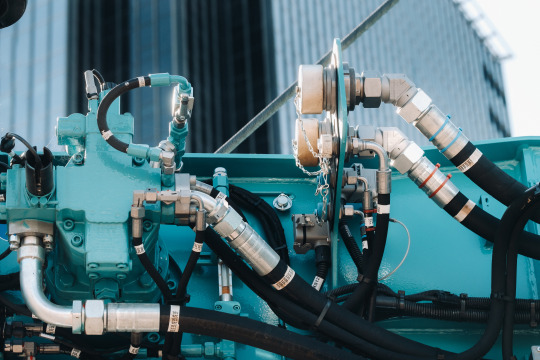Don't wanna be here? Send us removal request.
Text
Solenoid Valves in the USA: A Comprehensive Guide

Introduction
Solenoid valves are vital in various industries, including hydraulics, pneumatics, and fluid control systems. In the United States, the demand for solenoid valves is ever-growing due to their efficiency and reliability in managing fluid and gas flow. This article will provide a detailed overview of solenoid valves in the USA, covering their types, applications, and the importance of selecting the correct solenoid valve for your specific needs.
Types of Solenoid Valves
Solenoid valves come in various types, each designed for specific applications. Here are some common types:
1. Direct-Acting Solenoid Valves
Direct-acting solenoid valves operate with a direct mechanical connection to the valve seal. These valves are typically used for low-pressure applications and are known for quick response times.
2. Pilot-Operated Solenoid Valves
Pilot-operated solenoid valves use a diaphragm and a pilot valve to control the flow of fluids. They are suitable for high-pressure applications and are known for their reliability.
3. Way Solenoid Valves
2/2-way solenoid valves have two ports and are used to start or stop the flow of a fluid. They are commonly used in on/off applications.
4. Way Solenoid Valves
3/2-way solenoid valves have three ports and are used to divert the flow of a fluid. They are commonly used for applications that require switching between two outlets.
Applications of Solenoid Valves in the USA
Solenoid valves are utilized in various applications across various industries in the USA. Here are some of the critical sectors where solenoid valves play a crucial role:
1. Industrial Automation
In manufacturing and industrial processes, solenoid valves are used to control the flow of liquids and gases. They are essential for regulating the movement of hydraulic and pneumatic systems, making them a cornerstone of industrial automation.
2. HVAC Systems
Solenoid valves are commonly used in heating, ventilation, and air conditioning (HVAC) systems to control the flow of refrigerants, ensuring efficient temperature control and climate management.
3. Medical Equipment
In the healthcare industry, solenoid valves are integral to various medical equipment, such as anesthesia machines and ventilators, where precise control of gas and fluid flow is critical.
4. Water Treatment
Solenoid valves are employed in water treatment systems to regulate water flow, chemicals, and other fluids. They are essential for maintaining the quality of drinking water and wastewater treatment processes.
5. Agriculture
In the agricultural sector, solenoid valves are used for irrigation systems, controlling water flow to fields and ensuring efficient use of water resources.
Choosing the Right Solenoid Valve
Selecting the correct solenoid valve is paramount to ensure the efficient operation of your specific application. To make an informed choice, consider the following factors:
1. Valve Type
Determine the appropriate type of solenoid valve based on your application's requirements, such as 2/2-way or 3/2-way valves.
2. Media Compatibility
Ensure that the solenoid valve is compatible with the type of fluid or gas it will be handling.
3. Pressure and Temperature Ratings
Match the valve's pressure and temperature ratings with the operating conditions of your system.
4. Flow Rate
Calculate the required flow rate and select a solenoid valve that can handle it efficiently.
5. Material and Construction
Choose a solenoid valve made from materials suitable for your environment, whether corrosive, sanitary, or high-pressure.
Conclusion
Solenoid valves are indispensable components in countless applications across the United States, playing a crucial role in efficiently controlling fluid and gas flow. Selecting the correct solenoid valve is essential to ensure optimal performance and reliability. With the diverse range of solenoid valves available, it's critical to consider factors like valve type, media compatibility, pressure and temperature ratings, flow rate, and construction materials when choosing. By doing so, you'll be well-equipped to meet the specific needs of your application, whether it's in industrial automation, HVAC systems, medical equipment, water treatment, or agriculture.
0 notes